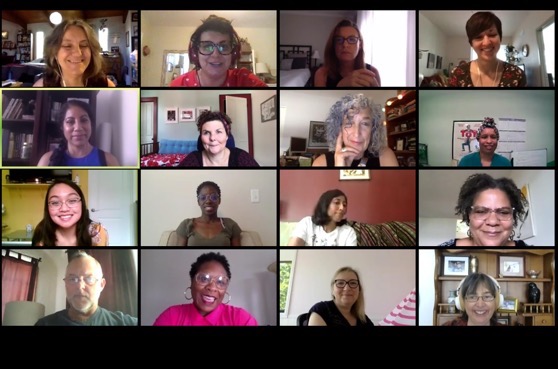Watch this entire presentation
Subscribe to Rosanne’s Channel and receive notice of each new video!
Transcript:
In their mind, playwrights were to be respected because they sold a product — they sold their play — screenwriters sold a service like a maid or a car wash person. That isn’t something they should own and that legal difference made the difference in how writers could have control of their work for years and years and years. At a certain point Dorothy Parker, again a very famous writer from New York, the Academy of Motion Picture Arts and Sciences, which we think of as the group that gives away the Oscars and has the big party once a year, in fact, started a union for writers but the producers were in charge of the rules of the union for the writers and Dorothy parker said “Looking to the academy for representation was like trying to get laid in your mother’s house. Someone was always watching in the parlor.” How could you trust the producers to give the writers a good deal if it meant less money for them but they were trying to appease the writers.
A Note About This Presentation
A clip from my keynote speech at the 10th Screenwriters´(hi)Stories Seminar for the interdisciplinary Graduation Program in “Education, Art, and History of Culture”, in Mackenzie Presbyterian University, at São Paulo, SP, Brazil, focused on the topic “Why Researching Screenwriters (has Always) Mattered.” I was especially pleased with the passion these young scholars have toward screenwriting and it’s importance in transmitting culture across the man-made borders of our world.
To understand the world we have to understand its stories and to understand the world’s stories we must understand the world’s storytellers. A century ago and longer those people would have been the novelists of any particular country but since the invention of film, the storytellers who reach the most people with their ideas and their lessons have been the screenwriters. My teaching philosophy is that: Words matter, Writers matter, and Women writers matte, r so women writers are my focus because they have been the far less researched and yet they are over half the population. We cannot tell the stories of the people until we know what stories the mothers have passed down to their children. Those are the stories that last. Now is the time to research screenwriters of all cultures and the stories they tell because people are finally recognizing the work of writers and appreciating how their favorite stories took shape on the page long before they were cast, or filmed, or edited. But also because streaming services make the stories of many cultures now available to a much wider world than ever before.
Many thanks to Glaucia Davino for the invitation.
* A portion of each sale from Amazon.com directly supports our blogs
** Many of these books may be available from your local library. Check it out!
† Available from the LA Public Library
Podcast: Play in new window | Download
Subscribe: RSS
![25 Selling Services, not products from Why Researching Screenwriters (has Always) Mattered [Video] (1 minute)](https://rosannewelch.com/wp-content/uploads/2020/08/rmw-sao-paolo-25.png)
![24 Studios and “Work For Hire” from Why Researching Screenwriters (has Always) Mattered [Video] (1 minute 10 seconds)](https://rosannewelch.com/wp-content/uploads/2020/08/rmw-sao-paolo-24.png)



![23 Edna Ferber and New York Writers from Why Researching Screenwriters (has Always) Mattered [Video] (1 minute 8 seconds)](https://rosannewelch.com/wp-content/uploads/2020/08/rmw-sao-paolo-23.png)
![22 More On The Auteur Theory from Why Researching Screenwriters (has Always) Mattered [Video] (1 minute)](https://rosannewelch.com/wp-content/uploads/2020/08/rmw-sao-paolo-22.jpeg)
![21 Truffaut and The Auteur Theory from Why Researching Screenwriters (has Always) Mattered [Video] (56 seconds)](https://rosannewelch.com/wp-content/uploads/2020/08/rmw-sao-paolo-21.jpeg)



![20 Ruth Gordon & Garson Kanin from Why Researching Screenwriters (has Always) Mattered [Video ] (53 seconds)](https://rosannewelch.com/wp-content/uploads/2020/07/rmw-sao-paolo-20.jpeg)
![19 Nunnally Johnson and John Ford from Why Researching Screenwriters (has Always) Mattered [Video] (51 seconds)](https://rosannewelch.com/wp-content/uploads/2020/07/rmw-sao-paolo-19.jpeg)
![18 Nunnally Johnson and The Grapes Of Wrath from Why Researching Screenwriters (has Always) Mattered [Video] (1 minute 11 seconds)](https://rosannewelch.com/wp-content/uploads/2020/07/rmw-sao-paolo-18.jpeg)